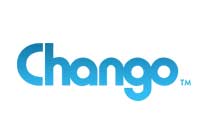 Search retargeting platform Chango announced a $4.25 million funding round led by investors Rho Canada as the company looks to grow its offering for self-serve advertisers as well as expand its full-service capabilities to larger clients. Read the release.
Search retargeting platform Chango announced a $4.25 million funding round led by investors Rho Canada as the company looks to grow its offering for self-serve advertisers as well as expand its full-service capabilities to larger clients. Read the release.
Chango CEO Chris Sukornyk discussed his company’s plans for its new funding and search retargeting strategies.
AdExchanger.com: What will use the $4.25 million for? Tech, hiring, offices, etc.?
CS: During 2010 we saw growth across all areas of our search retargeting business, including adding many new full service clients, as well as new self service clients. We faced our share of challenges to overcome of course, just like any young company, but we overcame those and had a very successful year.
We have a solid base of clients, a great tech platform and the processes in place to deliver strong returns for clients, and so now it is time to scale rapidly. At our core we are a technology company and we are going to continue to invest considerable resources into our engineering team which are responsible for data mining and campaign optimization across our real time ad exchange partners. The funding will also support immediate hiring in clients services and business development roles.
These new hires will be added to New York, San Francisco, Toronto and Chicago offices.
Who do you see in Chango’s competitive set today?
While not a direct competitor, I’ll mention Bluekai as an early innovator around intent-data. That said, we have taken a fundamentally different approach on the implementation of targeting people who have expressed intent using search retargeting. We are not a data company and do not sell just our data. We are an end to end solution that combines our own proprietary data with the technology to buy media and serve dynamic ads. We don’t believe that packaging up pre-defined audience segments and selling these will get clients optimal results. As search marketers know, to achieve extraordinary performance you need to constantly refine keywords and adjust pricing at a keyword level. A “black-box” audience segment purchased from a list will never deliver the same results as a custom tailored campaign focused on specific keywords.
What clients are you targeting? Large, small agencies? SEMs? Marketers?
To give an honest response, we are delighted to talk to any agency, retailer or brand who is considering search retargeting or who wishes to know more! We do find that larger campaigns allow for true learnings to be developed and so we start at the top end of small, and grow from there.
Given several of us in the executive team either come from agencies or have built companies servicing agencies, then we certainly understand how they work and how to meet their needs. We see agencies as a big part of our future. We are increasingly working with SEM agencies because they obviously have clients that speak our language.
Can search retargeting campaigns scale to the point a brand marketer might be interested in running an awareness campaign? Or is it a tool in the toolkit so to speak?
Scale is an important question. Search retargeting works by targeting those people who have searched for the terms relevant to a clients campaign. Scale is therefore determined by the volume of search events for given terms collected and then how many of those cookies we can find again in an appropriate amount of time.
For a brand marketer their terms tend to be more broad and so scale is less of a problem – we see a lot of top of funnel terms being used in brand campaigns in order to drive awareness before converting with tail terms.
For a niche direct response advertiser it depends on how narrow their search terms are. Scale can easily be assessed by examining the clients specific keywords. Given the breadth of our data relationships it is usually a non-issue. The added advantage of display over search is that we can continue to serve multiple ads to a ‘searcher’ whereas on Google you only get one chance.
Any surprises as you began looking for this latest round of investment?
Surprises always seem to appear at the end of a financing rounds never the beginning! Actually this round was remarkably smooth sailing. Despite the speed at which it occurred I’m glad to be shifting gears back to the business.
By John Ebbert












